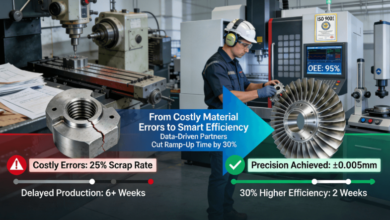How an AI Agent SEO Accelerates Your Optimization Workflow

Search engine optimization no longer depends solely on keywords, backlinks and content quality. Today, success requires technical stability, continuous monitoring, clear analytics and fast reactions to search changes. Managing all of this manually is difficult for teams handling multiple websites or markets.
To keep up, many teams adopt automation. An ai agent seo provides continuous monitoring, performance analysis and automated reporting so specialists can replace repetitive checks with intelligent workflows that highlight issues and opportunities early.
Why Automation Has Become Core to SEO
Manual audits are slow, inconsistent and expensive. Many teams still rely on scattered tools and ad hoc spreadsheets. As a result, they often discover visibility or technical problems only after traffic has already dropped. Automation changes this dynamic by running checks daily or even hourly and by converting raw data into useful signals.
When configured well, an agent identifies:
- Indexation problems
- Redirect errors
- Performance bottlenecks
- Keyword volatility
- Content or schema mismatches
Proactive detection protects rankings and reduces recovery time.
The Hidden Cost of Manual Work
Every missed issue has a price: lost visibility, delayed conversions and development time spent on unplanned fixes. Repetition also burns hours that could go into testing and iteration. Automating routine tasks restores control and predictability to the SEO calendar.
See also: How Dev Technosys Is Powering the Future of Automotive Software Development
What Exactly an AI Agent SEO Does
A capable agent consolidates analytics, crawl reports, backlink indexes and search visibility metrics into one operational view.
1. Technical monitoring
The agent checks HTTPS and SSL validity, page status codes, canonical and redirect consistency, robots.txt and sitemap health, JavaScript rendering and mobile compatibility. These factors preserve crawl efficiency and user trust.
2. Performance insights
Instead of scanning endless dashboards, the agent highlights sudden ranking shifts, keywords with high impressions but low CTR, pages losing traffic and content opportunities within semantic clusters. Attention goes to the changes that matter most.
3. Backlink and authority oversight
Off-page signals still drive organic performance. Automation enables continuous discovery of new and lost links, early detection of potentially risky domains, alerts when referring domains weaken and simple reports that summarize link growth trends.
4. Content optimization and on-page checks
The agent evaluates header hierarchy, internal link distribution, metadata completeness, schema structure, readability and topical coverage. These insights guide incremental refreshes that align content with evolving search intent.
How It Improves Team Efficiency
SEO requires coordination among marketers, developers and writers. Coordination fails when data is scattered and reporting inconsistent. An AI agent centralizes information and produces:
- Shared dashboards for stakeholders
- Automated weekly summaries
- Priority-based task lists
- Historical comparisons that show progress
This structure reduces confusion and speeds implementation.
When to Adopt an AI SEO Agent
Adoption makes sense when you manage multiple domains or locales, when reporting already consumes a significant share of time, when incidents are often discovered by chance and when growth depends on faster decision cycles. Even small teams can scale confidently once repetitive maintenance is automated.
Addressing Common Misconceptions
Myth: AI replaces SEO expertise.
Reality: It removes repetitive work so experts can focus on analysis, prioritization and creative problem solving.
Myth: AI outputs are generic.
Reality: Well designed agents read site-specific patterns and prioritize based on context.
Myth: Setup is complicated.
Reality: Modern platforms connect to GSC, GA4 and other sources with straightforward onboarding.
How to Evaluate an AI SEO Agent
Before selecting a platform, examine integration scope, monitoring frequency, alert customization, reporting flexibility and onboarding simplicity. A tool that is too complex defeats the purpose of automation.
Implementation Tips for Best Results
- Connect GA4, GSC and backlink monitoring first.
- Define alert thresholds for critical incidents.
- Schedule a weekly review to validate insights and refine triggers.
- Expand automation to content refresh and internal linking once technical health is stable.
- Track time saved and incident response speed to demonstrate ROI.
Conclusion
Search optimization is a continuous process that rewards speed, accuracy, and foresight. Manual work alone cannot maintain visibility or consistency at scale. An ai agent seo helps by automating checks, reports, and insights so teams can focus on strategy and execution that move the business forward.





